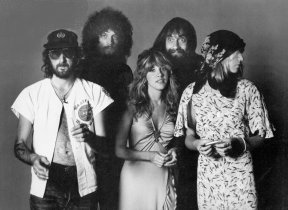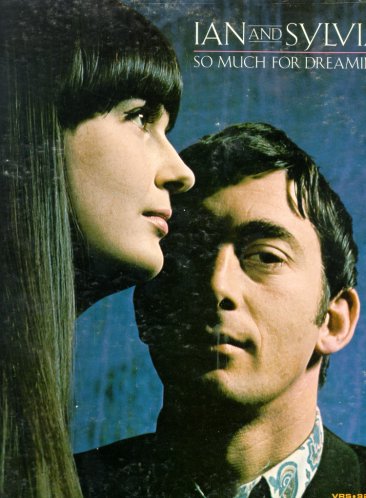I don’t believe in top 10 lists, generally. If a song or movie or book is great, you should hear it or see it or read it, regardless of whether or not it is anyone’s top 10 list.
Still, it is useful sometimes to have a list of “essentials”. These are works of art that almost certainly will prove rewarding, if you haven’t yet experienced them. You could argue all day and all night about whether “Citizen Kane” is #1 or #10 on your list of all-time great movies, but few people would dispute that it is very worth seeing.
So granted that valuations and rankings have very limited value, they do have that one particular virtue.
A few years ago, in 1992, the London Free Press published a list of the top 1,000 popular songs of the rock era. These songs were chose by a bunch of DJ’s, I believe, and reflect some bizarre criteria. What on earth is Bryan Adams doing anywhere near the top 100? And Tom Cochrane’s “Life is a Highway” at #12? Weird!
Here’s my own list. I don’t put much significance in actual position. Do you think I care if “Like a Rolling Stone” should be first, or “Satisfaction”? The point is that both of them are great songs.
One thing I do care about: you will notice that not a single twisted, pompous, over-blown, mannerist “magnum opus”– like “Bohemian Rhapsody” or “Paradise by the Dashboard Light” or “Hotel California” or even “Stairway to Heaven” is on my list. Sure, these songs do have their virtues, and I can enjoy them once in a while. But great artists are economical with their material. Sometimes the greatest talent is that of knowing what to leave out. That’s the difference between the Beatles’ White Album– a disaster in many respects– and Abbey Road, a masterpiece. That’s difference between the brilliant Blonde on Blonde and the abysmal Self Portrait, both by Bob Dylan.
There’s great music in both, somewhere, but only one of each pair is a great album.
Anyway, let’s start with a list of best singles, of all time:
| 1. | I Fought the Law | Bobby Fuller Four | The greatest most complete compact piece of music ever created. The Clash’s version is pretty impressive too, but Bobby Fuller’s lean and mean Fender strat takes the cake. |
| 2. | Like a Rolling Stone | Bob Dylan | Lyrically and musically, a masterpiece of it’s time– a vitriolic indictment of everything superficial and phony and materialistic about our society. |
| 3. | Suzanne | Leonard Cohen | A beautiful, moody, and mystical tribute to the essence of feminine grace. |
| 4. | (I can get no) Satisfaction | Rolling Stones | The greatest riff in rock’n’roll. |
| 5. | Good Vibrations | Beach Boys | I am not a fan of Brian Wilson and company, but there is more invention and musical imagination in these three minutes than there are blondes in Malibu. |
| 6. | Eleanor Rigby | Beatles | Inspired by Bob Dylan, the Beatles raised their music to a new level with the albums Rubber Soul and Revolver. |
| 7. | Sultans of Swing | Dire Straits | Mark Knopfler’s amazing lead guitar punctuates this crisp, driving paean to musician’s musicians. |
| 8. | All Along the Watchtower | Bob Dylan | Or Jimi Hendrix. Both versions are excellent, but Dylan’s is more compact and efficient. |
| 9. | Anchorage | Michelle Shocked | Weirdly evocative punk-country tune that never ceases to tickle. |
| 10. | Runaway | Del Shannon | During the lean years between Elvis and the British Invasion, this was one of the few marvels. |
Honorable Mentions |
|||
| 11. | Sweet Jane | Lou Reed | |
| 12. | Twist and Shout | Beatles | |
| 13. | Reelin’ in the Years | Steely Dan | |
| 14. | Layla | Derek and the Dominos | Okay– so it’s a bit pompous and self-indulgent. It’s also one of the greatest guitarists ever at his best. |
| 15. | Won’t Get Fooled Again | Who | |
| 16. | Go Your Own Way | Fleetwood Mac | |
| 17. | Thunder Road | Bruce Springsteen | |
| 18. | London Calling | Clash | |
| 19. | Norwegian Wood | Beatles | |
| 20. | Hallelujah | Leonard Cohen | |
| 21. | Psycho Killer | Talking Heads | |
| 22. | Money | Pink Floyd | |
| 23. | Me Myself I | Joan Armatrading | |
| 24. | Diamonds are a Girl’s Best Friend | T-Bone Burnett | |
| 25. | Heart of Gold | Neil Young | |
| 26. | Stage Fright | The Band | |
| 27. | Down by the River | Neil Young | |
| 28. | Rip in Heaven | Til Tuesday | |
| 29. | Don’t Fear the Reaper | Blue Oyster Cult | One of the most chilling songs ever recorded. |
| 30. | Frederick | Patti Smith | |
| 31. | Lucy | Al Stewart | |
| 32. | Joey | Concrete Blonde | Hmmm. Maybe. |
| 33. | Criminal Under My Own Hat | T-Bone Burnett | |
| 34. | Tokyo | Bruce Cockburn | |
| 35. | This Wheel’s on Fire | Band |
Bill’s Top Ten Albums
Whenever I do this sort of thing, I almost unconsciously start thinking, well, gotta have a woman in there, and a black, and, geez, you can’t leave out this band or that band or whatever. That’s not the right way to choose your favourite albums of all time. So I tried to simply stick to the best 40 minutes of music, period. I have also excluded collections and greatest hits albums. If I did include them, Dylan’s Greatest Hits Volume II would be the winner, hands down.
| 1. | Highway 61 Revisited | Bob Dylan |
| 2. | Rubber Soul | Beatles |
| 3. | Brothers in Arms | Dire Straits |
| 4. | New Skin for the Old Ceremony | Leonard Cohen |
| 5. | Harvest | Neil Young |
| 6. | Born to Run | Bruce Springsteen |
| 7. | Exile on Main Street | Rolling Stones |
| 8. | Rumours | Fleetwood Mac |
| 9. | Déjà vu | Crosby, Stills, Nash, & Young |
| 10. | Music From the Big Pink | Band |
Honorable Mentions:
| 11. | Songs of Leonard Cohen | Leonard Cohen |
| 12. | Bookends | Simon and Garfunkel |
| 13. | After the Gold Rush | Neil Young |
| 14. | Blood on the Tracks | Bob Dylan |
| 15. | Blonde on Blonde | Bob Dylan |
| 16. | Aja | Steely Dan |
| 17. | Ghosts that Haunt Me | Crash Test Dummies |
| 18. | Trinity Sessions | Cowboy Junkies |
| 19. | Songs of Love and Hate | Leonard Cohen |
| 20. | Everything’s Different Now | Til Tuesday (Aimee Mann) |
Disagree? So do I. Lists are stupid. But they get you thinking about great songs and about what makes a song great. More importantly, they help you decide on what to load up onto your music player.



